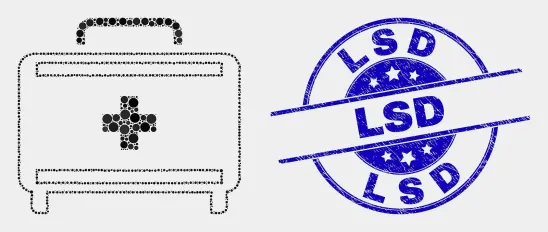On June 26, 2023, the U.S. Food and Drug Administration (FDA) issued its first draft guidance entitled Psychedelic Drugs: Considerations for Clinical Investigations Guidance for Industry (Guidance), which highlights considerations for sponsors developing psychedelic drugs for treatment of medical conditions (e.g., psychiatric disorders, substance use disorders) and for clinical trials that will be conducted under an investigational new drug application (IND) specifically. “Psychedelics” as used in the Guidance is limited to psilocybin, lysergic acid diethylamide (LSD) and methylenedioxymethamphetamine (MDMA). Notably the guidance demonstrates FDA’s recognition that psychedelic drugs have therapeutic potential and the FDA’s willingness to work with researchers on the development of such drugs. However, FDA notes the challenges associated with drug development and clinical studies utilizing such substances, which possess unique characteristics. Appreciating that psychedelic drugs are unique and an emerging area of drug development, rather than providing specific recommendations regarding study design, the Guidance presents foundational constructs, organized by discipline, that all sponsors studying the therapeutic potential of psychedelic drugs should consider. A high-level summary of each consideration follows.
Chemistry, Manufacturing, and Controls
Sponsors must provide sufficient chemistry, manufacturing, and controls information to ensure proper identification, quality, purity, and strength of the investigational drug substance and drug product. The drugs must be manufactured in compliance with current good manufacturing practice.
Nonclinical
The nonclinical program for psychedelic drugs should follow recommendations outlined in the International Council for Harmonisation of Technical Requirements for Pharmaceuticals for Human Use (ICH) guidance for industry M3 (R2) Nonclinical Safety Studies for the Conduct of Human Clinical Trials and Marketing Authorization for Pharmaceuticals(January 2010) (promoting the facilitation of the timely conduct of clinical trials, the reduction of the use of animals in accordance with the 3R (reduce/refine/replace) principles, and the reduction of the use of other drug development resources). However, it may be reasonable for clinical studies with certain psychedelic drugs to be initiated under an approved IND in the absence of the typical animal toxicology testing when extensive human exposure and information are available from previously conducted clinical studies and no serious safety concerns have been identified. Psychedelic drugs without history of adequate clinical exposure should not be tested in humans until safety has been established in nonclinical studies. Furthermore, nonclinical studies used to support chronic or chronic-intermittent dosing should be provided if the treatment effect is not durable and repeat dosing is expected. Lastly, because psychedelic drugs have serotonin (5-HT) activity, a thorough evaluation of binding to 5-HT receptor subtypes should be conducted.
Clinical Pharmacology
Pharmacodynamics of psychedelic drugs should be adequately characterized in vitro and in vivo. Sponsors should explore specific listed interactions and dose responses in any clinical pharmacology testing.
Abuse Potential Assessment
Sponsors should closely assess the abuse potential of the drug products under development. Data from abuse potential assessments and a proposal for drug scheduling under the Controlled Substances Act is required to be included in a new drug application submission. An assessment of the potential for physical dependence with a psychedelic drug may be appropriate as part of the abuse potential assessment depending on the proposed conditions of use for which the drug is being studied. Additionally, the psychedelic drugs that are Schedule I controlled substances must comply with the applicable Drug Enforcement Administration (DEA) regulations for research, manufacturing, importation/exportation, handling, and storage requirements. Sponsors are encouraged to discuss their plans for an abuse potential assessment with the FDA early in the IND stage of drug development and request review and comment on these plans from the Controlled Substances Staff in the Center for Drug Evaluation and Research.
Clinical
The FDA indicated that the substantial evidence standard for establishing effectiveness of psychedelic drugs is the same as it is for other drugs, but explicitly acknowledged that sponsors should consider the unique characteristics of psychedelics when designing clinical trials. For example, in the context of psychedelic drug development, the FDA recognizes that due to the unique characteristics of psychedelic drugs, the use of a traditional placebo as a control can be problematic for assessing efficacy and designing an adequate and well-controlled (AWC) clinical study. Further, the Guidance permits adding psychological support or psychotherapy surrounding the use of a psychedelic may be utilized. However, the FDA explicitly noted that as of the publication of the Guidance, the contribution of the psychotherapy component to any efficacy observed with psychedelic treatment has not been characterized. As such, sponsors should plan to justify the inclusion of a psychotherapy component and describe any trial design elements intended to reduce potential bias or to quantify the contribution of psychotherapy to the overall treatment effect. The Guidance further recommends that the therapist monitoring a session should not be involved in post-session psychotherapy to avoid any bias in the delivery of subsequent therapy.
Lastly, because subjects receiving active treatment with psychedelic drugs could remain in a vulnerable state for a long period of time, the FDA recommends additional safety measures for during the use of the drug and after the treatment session (e.g., observation by two monitors, including a licensed healthcare provider with clinical experience in psychotherapy to serve as the lead monitor and an assistant monitor with at least one year of clinical experience in a licensed mental healthcare setting; informed consent that clearly describes a subject may experience changes in perception, cognition, and judgment which could last for many hours).
The FDA is inviting public comments on the Guidance until August 25, 2023 (Docket No. FDA-2023-D-1987). Once finalized, the Guidance will represent the FDA’s current thinking on the development of psychedelic drugs.







 />i
/>i
